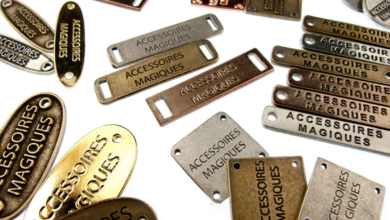Retail Store Management Software: Everything You Need to Know

Imagine the following scenario: You’re managing a retail store, and you’re juggling inventory, customer service, employee shifts, sales information and supplier orders. Every job seems like it’s taking you in a different direction. What if you could manage everything on one platform, reducing time, reducing mistakes, and helping to expand your business easily?
This is exactly what retail store management software offers: a game-changing solution that’s quickly becoming a must-have for retailers who want to stay ahead of the competition in 2025.
There’s no need to relying on spreadsheets or disconnected systems. Software for managing retail stores combines all of your essential operations into one platform that provides real-time data and streamlining processes. This blog will look at the ways this software can improve how you run your business in retail, improve the experience of customers, and improve your bottom line.
How Retail Store Management Software Enhances Operations
1. Streamlined Inventory Management
Management of inventory is at the heart in retail business operations. If the stock levels aren’t accurate this can lead to excessive stocking, understocking and, ultimately, loss of sales. Software for managing retail stores solves this problem by offering real-time inventory monitoring across every location.
Here’s how it will work:
- Automated inventory updates occur when items are sold or replenished.
- Predictive analytics can aid you in determining the demand for the most popular products.
- Simple identification of the inventory that is slow to move which allows you to improve the level of inventory.
Automation in this manner makes sure you’re not overstocking your products that don’t sell and you’re not running out of your top selling products.
2. Optimized Employee Management and Scheduling
Retail stores usually operate on different shifts, with varying customers’ traffic and seasonal requirements for staffing. Scheduling shifts manually and keeping track of the hours of employees can be a challenge.
Retail store management software makes managing employees easier by automating:
- Schedules of employees are based on peak hours and traffic information.
- Monitoring to monitor the attendance of employees and monitoring of performance.
- The generation of Payroll reports, which sync with your POS system.
This results in more efficient scheduling, making sure that your staff is available in the correct place at the appropriate time and increasing overall efficiency.
3. Enhanced Customer Experience
In the present competitive retail marketplace, providing an personal experience for customers is essential. Retail store management software can help to tailor each interaction to your customer’s needs by combining data from different channels.
Here’s the way to do it:
- Profiles of customers are created from the purchase history, preferences, and other interactions.
- Personalized loyalty plans and discount coupons that can be customized.
- Integration with the POS systems to speed up checkouts and provide better customer service.
Customers would appreciate a more personal shopping experience, whether in-store, online shopping, or engaging via social media.
Key Features to Look for in Retail Store Management Software
When choosing retail store management software, there are many different options available, and not all of them are designed equally. These are the essential features to ensure that you’re getting the most value from your program:
1. Point of Sale (POS) Integration
A seamless POS system that is seamless is an essential part of every retail store. Your POS system must be integrated with your program to simplify the process of selling, keep track of the inventory, and record customer information in real time.
Key benefits:
- Rapid, efficient checkout process..
- A precise track of sales and inventory.
- Access to the history of purchases by customers allows for better upselling.
2. Multi-Store Management
If your retail store has several sites, managing all of it on one platform is essential. Store management tools for retail that supports multi-stores allows you to monitor the performance, monitor inventory, and manage employees across all locations on a single screen.
Key benefits:
- Updates on inventory in real-time across all stores.
- Performance comparisons of several locations.
- Centralized customer information, even for multi-location loyalty programs.
3. Data Analytics and Reporting
Data-driven decision-making is essential to successful retail operations. Software for managing retail stores should provide powerful analytical tools that offer insights into the level of your inventory, sales as well as employee performance and much more.
Key benefits:
- Reports that can be customized according to your specific KPIs.
- Real-time analytics that monitor trends in sales as well as the movement of inventory.
- Finding the sales potential in addition to the performance bottlenecks.
4. Mobile Access
In the current fast-paced environment in which we live, being able to have accessibility via mobile to your store’s management system is essential. When you’re managing inventory or monitoring sales information or talking to employees using mobile devices, you can keep track of your inventory, wherever you may be.
Key benefits:
- Access to the latest sales information anytime, anywhere.
- Ability to monitor the inventory to manage employees in the field.
- Quicker response times to operational problems.
Benefits of Retail Store Management Software
1. Improved Efficiency and Time Savings
By automatizing key processes like the tracking of inventory, scheduling employees as well as reporting the software for managing retail stores helps you save time and minimizes the chance of human errors. Your staff can concentrate more on customer service and driving sales instead of being distracted by manual work.
2. Better Decision-making with Data-Driven insights
The ability to examine data in real-time allows retailers to make better choices. It doesn’t matter if it’s determining what products are in the spotlight or identifying gaps with staffing levels, these information aid in distributing resources more efficiently and boost profits.
3. Scalable Growth
When your retail business expands, it is essential to have tools that can adapt to your needs. The software for the management of retail stores permits ease of scaling regardless of whether you’re opening new stores or expanding your product line. The software is able to adjust to increasing complexity while keeping your operations running smoothly, even as you expand.
4. Cost Savings
Reduced waste, optimizing stock levels, and increasing the efficiency of employees all contribute to cost savings. Software for managing retail stores offers the tools needed to reduce these inefficiencies and give you more opportunities to earn profit.
The challenges retailers may face when using Store Management Software
While the benefits are evident but the process of implementing retail store management software could pose some issues:
1. Data Migration
Moving from old platforms to a new one can be daunting. Data migration must be handled with care to ensure that all of your current information (such as inventory or customer information) is properly transferred.
2. Employee Training
In order for the system to be effective, your employees need to be well-trained. If your staff isn’t proficient the use of the software, benefits might not be fully appreciated.
3. Initial Costs
While the software may save you in the long term, however, the initial costs could be substantial, particularly for smaller companies. It is crucial to think about ROI as well as the long-term benefits of the program.
Read Also: Business Grooming Tips for Professionals: Elevating Your Personal Brand
Conclusion: The Future of Retail Is Streamlined
Retailing is changing, and retail store management software plays a key role in this change. It allows retailers to stay flexible and reduce operational costs and, most importantly, improve the experience of customers.
As we approach 2025, it is essential to adopt a software system that integrates all aspects of retail operations – from inventory to sales to customer relations–will be crucial to keep an edge in the market. If you’ve yet to make the change, this is the ideal time to invest in store management software to simplify your business for the coming years.
FAQs
1: How much does retail store management software cost?
The cost varies depending on the software’s features, the size of your business, and the number of users. Many platforms offer subscription-based pricing.
2: Can I integrate my existing POS system with retail store management software?
Yes, most retail management software platforms are designed to integrate with existing POS systems, ensuring smooth operation across all touchpoints.
3: How long does it take to implement retail store management software?
Implementation time depends on the complexity of the software and your store’s requirements. It typically takes between a few weeks to a couple of months, including training.
4: Is retail store management software suitable for small businesses?
Absolutely! Many software platforms are designed with scalability in mind, offering plans that cater to small businesses with the flexibility to grow.
5: What’s the difference between retail store management software and ERP systems?
While ERP systems manage overall business functions (finance, HR, etc.), retail store management software focuses specifically on retail operations, including inventory, POS, employee scheduling, and customer data.





